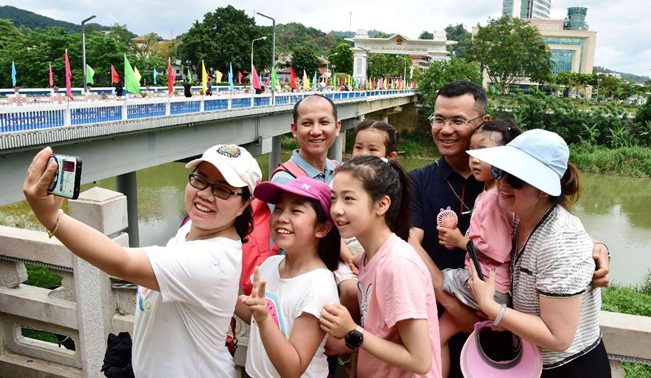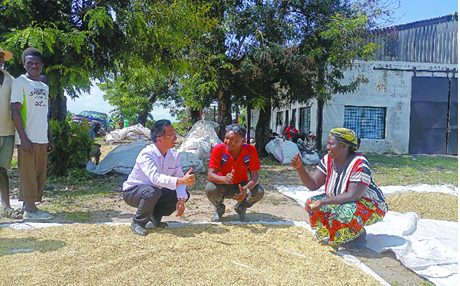
By Rana Irfan Rafi
Politicians play a vital role in shaping the course of a country’s development, governance, and democracy. Their decisions and actions have far-reaching implications for the well-being and prosperity of society, making their role essential in building and sustaining a healthy and functioning political system.
With its founding in 1947, Pakistan has seen many important changes, difficulties, and events that have made it a complicated country. Pakistan is still confronted with issues including political unpredictability, institutional vulnerability, corruption, conflicts between different ethnic and sectarian groups, and civil-military ties even with its recent democratic advancements. Striving for stability and progress, the nation’s political course is nonetheless shaped by a complex interaction of regional, foreign, and local variables.
There are several historical, institutional, socioeconomic, and external elements that contribute to Pakistan’s political instability. Pakistan has seen a great deal of military takeovers and interventions. Political meddling by the military has frequently harmed civilian institutions, ruined democracy, and created unstable cycles. Pakistan’s civil society institutions, such as the legislature, the judiciary, and the bureaucracy, have always been weak and vulnerable to corruption. Insufficient institutional capability and independence impedes efficient government and sustains political instability. Pakistan is a country with a diversified population of different ethnic groups, religions, and cultures. Political violence, instability, and social unrest have all been exacerbated by tensions between various ethnic and sectarian groups, especially in areas like as Karachi and Baluchistan. At all levels of Pakistani society and government, corruption is rampant and threatens political stability, economic growth, and public confidence. Political unrest and instability are fueled by economic instability, which also adds to social inequality, poverty, and dissatisfaction. Extremism and terrorism have targeted Pakistan from both within and beyond. Extremist organizations, such as the Taliban and Attacks by other Islamist groups have undermined attempts to bring about peace and stability and destabilized the nation. Pakistan’s political stability is impacted by its geopolitical location, notably by its rivalry with India, its involvement in the Afghan conflict, and its relationships with its neighbors. Internal instability in Pakistan may worsen as a result of regional tensions and wars. Pakistan’s political dynamics are influenced by external influences, such as foreign countries interfering, which leads to instability. Pakistan’s domestic politics and governance are shaped by global players, foreign aid and assistance, and geopolitical rivalry.
The political climate is at an all-time low right now, following the election in February 2024. Without the backing of another party, none of the parties can form their own government at this time. It brought up a pretty serious circumstance. How can we stabilize our political environment so that Pakistan may reach its objective and become stable? How to manage the political climate and maintain tight relationships with politicians and other government stakeholders? How may social groups and civil society in Pakistan fulfil their role in overcoming political instability? How can social organizations and civil society play its role in political landscape in Pakistan?
Civil society organization’s may help political parties, ethnic groups, and other stakeholders engage in communication and mediation. They may lessen tensions and disputes that fuel political instability by promoting understanding and healing. Promoting transparency, good governance, and the rule of law is a major responsibility of civil society. Organizations’ from civil society may assist in addressing the underlying causes of political instability by encouraging changes to fortify democratic procedures and holding government institutions responsible for their actions. Programs that foster inclusion and social cohesion, especially among underprivileged populations, can be implemented by social sector institutions. These efforts can lessen societal differences and foster stability by addressing disparities and encouraging tolerance and acceptance. organizations’ in the social sector provide social services, healthcare, and education. welfare, especially to those who are most in need. They promote residents’ well-being and solve underlying socioeconomic issues by guaranteeing access to these services, which in turn contributes to stability. organizations’ in the social sector and civil society may get young people involved in positive activities including skill development, civic education, and community development initiatives. Giving communities and young people the power to participate in decision-making processes promotes a sense of ownership and investment in the future of the nation, which helps maintain stability. organizations from the civil society are essential for keeping an eye out for and exposing breaches of human rights, particularly those committed by governmental authorities. They may put pressure on authorities to respect human rights norms and resolve complaints by recording and making public such infractions, which will lessen the sources of instability. Civil society groups may assist in ensuring free and fair elections by keeping an eye on elections, encouraging voter education, and supporting changes to the electoral process. Increasing the legitimacy and public trust in the administration is one way that strengthening democratic institutions and procedures promotes political stability. By encouraging communication, rapprochement, and conflict resolution at the local level, civil society groups may contribute to peacebuilding initiatives. They provide a positive impact on stability and resistance to future conflicts by resolving underlying grievances and advocating for nonviolent forms of conflict resolution.
The author is associated with SDPI (Sustainable Development Policy Institute) as project assistant and can be contacted at irfanrafi@sdpi.org tweeter@ranaskt11











